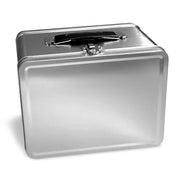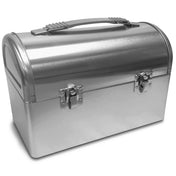The idea of writing a will gives some of us the creeps. After all, what you're preparing for is your demise -- hardly a rosy thought. But, if you're a parent, it's essential to start planning for that fateful day.
Your kids depend on you for more than your love -- they depend on you for their quality of life. And, if something happens to you and/or your spouse, you need to make sure they're taken care of. Who will they live with? How will they be raised? Who gets your wedding ring? You want a say in all these decisions and more.
Beyond a gloomy reputation, there are also lots of misconceptions about wills. Two biggies: what they cost and how they work.
Myth No.1: Wills are expensive. Cost is number one on the list of why more of us don't have wills. In fact, a study by Lawyers.com last year found that more than 40 percent of folks blamed tight finances as the reason why they haven't gotten a will yet. But a basic DIY will kit -- which makes clear who will be the guardians of your children, along with some basic estate decisions -- only costs about $50 on sites such as Nolo and LegalZoom.
Your kids are worth at least half the cost of your monthly cable bill, right? Making a full estate plan that involves a lawyer can run you $500 to $1,000, depending on how complicated your estate and your instructions are.
What costs more than that, however, is fighting the judgment of the court if you or your spouse doesn't have a will. A contest in court between you and your in-laws could cost upwards of $10,000. Wills and trusts are your first line of defense -- and an investment in protecting not only your family unit, but everything you've worked so hard to have.
Myth No. 2: Your spouse and kids will get your assets anyway. The same study found that 20 percent of Americans think the courts automatically hand over what you have to your spouse and/or kids when you die. Wrong. Not having a will means not only that a judge will decide where your kids (and your assets and debts) go, but that someone can contest and fight those decisions.
Really, a will is just the beginning. You also need a living trust to name beneficiaries for assets, including your house, retirement funds or even jewelry or a car. Of course, a solid living trust should go through the eyes of a lawyer, even if you get started on your own online. The extra money spent is all about preventing gobs more from leaving your estate down the road.
We know what you're thinking: "Estate? What estate?!" But estate is just a fancy word for the stuff you've got that's worth something -- from equity in your home to cash in the bank to retirement savings. All are part of your "estate," and thus part of estate planning, no matter how big or small.
So squash your excuses. Keep the courts out of your family affairs and your stuff. Get that will today, and work on that living trust, too. You'll make sure that on that fateful day, what your loved ones are mourning is you -- not the loss of their home and way of life, too.
Photo by Debby Hudson of Unsplash






